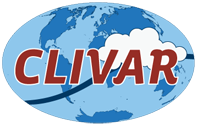CLIVAR Open Science Conference abstract submission, requests for funding, and applications to participate in the Early Career Scientists Symposium of 2016 will be closed on Friday 25 March 9 pm GMT; visit www.clivar2016.org before then to submit an abstract, apply for funding or the...
News
This week at the Arctic Science Summit Week the World Climate Research Programme (WCRP) and the Prince Albert II of Monaco Foundation announced the launch of a new Polar Challenge to develop an Autonomous Underwater Vehicle (AUV) capable of completing a 2000 km mission under the sea ice in the Arctic or Antarctic.
The aim of the challenge, which includes prize money totalling 500 000...
The CFMIP/WCRP/ICTP Conference on Cloud Processes, Circulation and Climate Sensitivity will be held 4-7 July 2016 at the International Center for Theoretical Physics, Trieste, Italy. This CFMIP/WCRP/ICTP international conference will focus on the theme of the WCRP Grand Challenge on Clouds, Circulation and Climate Sensitivity, in addition to addressing other ongoing CFMIP activities.
...
Due to unanticipated technical difficulties, the abstract submission system has migrated to a new system. All abstracts and information submitted through the old system have been transferred to the new system, and past submitters have received a notification with a new login, password and abstract number(s).
To allow the necessary time for migration and implementation of the new system...
Course description and objectives
The ocean is an increasingly important source of protein for a growing human population, but at the same time under constant pressure from climate change, pollution and fisheries activities. In this course we will discuss how the ocean and the organisms living in it are affected by these factors,...
Post-doctoral program for young scientists, co-sponsored by the LabexMER cluster of excellence, Ifremer, the University of Brest and the Brittany Regional council.
The aim of the program is to give creative young scientists the opportunity to develop their own research project in one of the LabexMER laboratories in Brest, South Brittany or in Nantes (France).
Fellows are...
Overview:
During the last decade, the ocean community witnessed worldwide the launch of over 30 new ocean-related satellite missions. Plans for new satellites, to improve the spatial-temporal sampling, are already laid well into the foreseeable future, and today, we are already talking Petabytes of data to download, analyze, transform into accessible information. Increasing computer...
CLIVAR organized a town hall on the first day of the recent Ocean Sciences Meeting in New Orleans to showcase the breadth of CLIVAR activities, outline plans for the Research Foci and Panel activities and promote the Open Science Conference. The event, entitled "CLIVAR—Climate and Ocean: The Next 10 Years of CLIVAR Science as Part of the World Climate Research Programme "...
Under an equilibrium climate, there is a global balance between the absorbed solar radiation and the outgoing longwave radiation emitted by the Earth. Perturbations due to internal climate variability and external climate forcings can create an Earth’s Energy Imbalance (EEI, Figure 1a), which is...
Elsevier is calling for submission of papers for a Special Issue that aims to demonstrate how Essential Climate Variables (ECVs) can be generated from Earth Observation data, as well as the use of those variables in climate modelling and other climate-related applications. The special issue is mainly focused on the Climate Change Initiative (CCI) program of the European Space Agency (ESA)....
To meet the scientific community requirements European Space Agency (ESA) supports a project called Ocean Heat Flux (OHF) aiming at the development, validation, and evaluation of satellite-based estimates of surface turbulent fluxes, particularly derived from ESA satellite/mission EO data, of all the components of the turbulent fluxes over global...
Annual Review of Marine Science latest volume in 2016 is available online. The review papers with particular focus on CLIVAR's main themes include:
...
This town hall session serves to inform about the new CLIVAR science directions and to provide a platform to hear and discuss your ideas on future science and implementation requirements to meet urgent climate research goals. CLIVAR scientists representing CLIVAR Panels and Research Foci will make brief presentations followed by audience participation and discussion. The discussion outcomes...
Photo courtesy Céline Le Helley
The 4th CLIVAR workshop on the evaluation of El Niño / Southern Oscillation (ENSO) processes in climate models was held at Sorbonne-Universités in Paris in July 2015, in conjunction with the UNESCO “Our Common Future Under Climate Change” conference. The workshop, hosted by IPSL and attended by 50 experts including 12 early-career scientists (see...

























